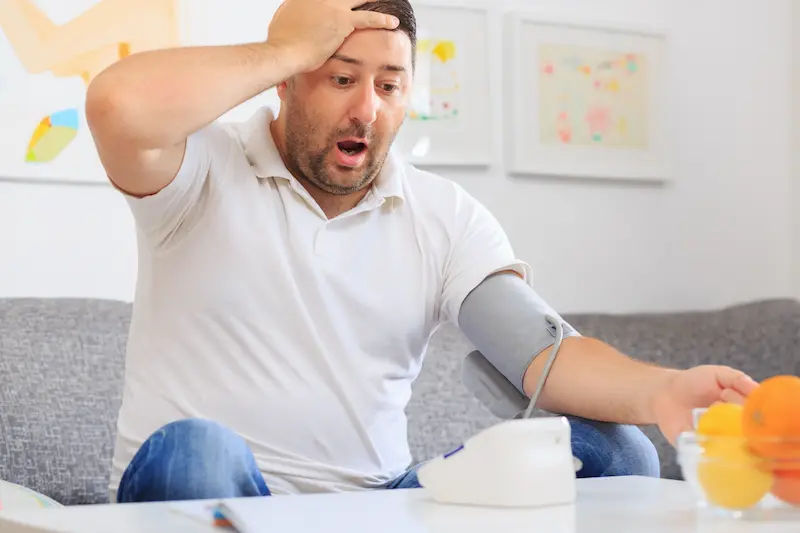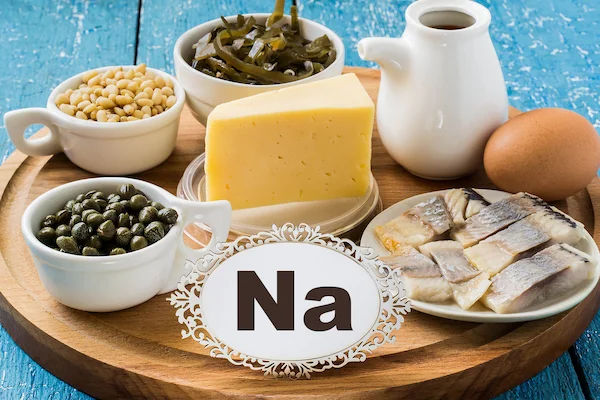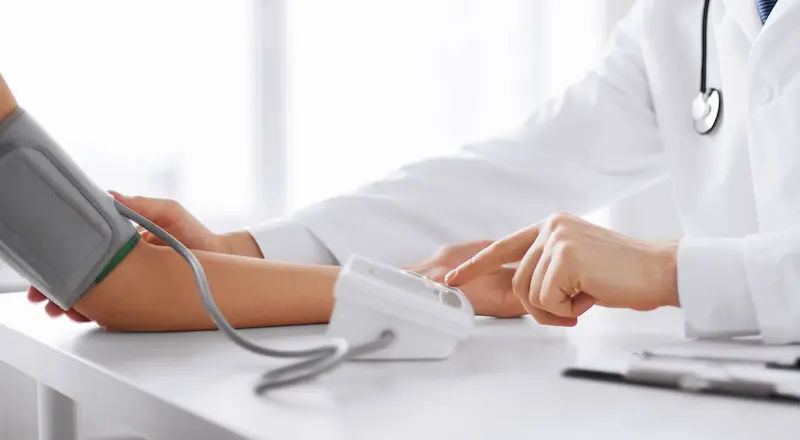Guide to Impact Of Energy Drinks On Hypertension
Unlock the truth about energy drinks and high blood pressure. Our comprehensive guide reveals the ingredients, mechanisms, and risks involved, offering actionable tips for managing your health. Read now to make informed choices for a healthier heart."

Written by Dr. J T Hema Pratima
Reviewed by Dr. Rohinipriyanka Pondugula MBBS
Last updated on 13th Jan, 2026

Introduction
That quick burst of energy from a brightly colored can might feel essential for pushing through a long day or a late night, but have you ever considered the cost to your heart health? The impact of energy drinks on hypertension is a growing concern among healthcare professionals worldwide. These popular beverages are more than just caffeine; they are a potent cocktail of stimulants and sugar designed to jolt your system. This article delves deep into the science behind how these drinks affect your cardiovascular system, causing acute spikes and potentially contributing to chronic high blood pressure. We'll unpack the ingredients, examine the research, and identify who is most at risk. Most importantly, we'll provide practical, healthier alternatives to help you sustain your energy without compromising your wellbeing. Your heart will thank you for reading this.
Consult a General Physician for the best advice
What's Really in Your Can? Decoding Energy Drink Ingredients
Before understanding the impact, it's crucial to know what you're consuming. Energy drinks are not simple caffeine delivery systems. They are complex formulations of various compounds that work synergistically (and sometimes dangerously) to stimulate your nervous system.
Caffeine: The Primary Culprit in Blood Pressure Spikes
The main active ingredient in most energy drinks is caffeine, and often in surprisingly high doses. A single 16oz can can contain anywhere from 70 mg to over 200 mg of caffeine—sometimes as much as two to three cups of coffee. Caffeine raises blood pressure primarily by blocking a hormone that helps keep your arteries widened. Simultaneously, it stimulates the release of adrenaline, a stress hormone that increases heart rate and forces the heart to pump harder. This one punch is a direct trigger for a blood pressure spike after energy drink consumption.
Sugar: The Sweet Danger for Your Heart Health
Many energy drinks are loaded with sugar, often exceeding 50 grams per serving—that's more than the American Heart Association's recommended daily maximum of 36 grams for men and 25 grams for women. This massive sugar influx causes a rapid spike in blood glucose and insulin. Over time, consistent high sugar intake leads to weight gain, insulin resistance, and inflammation, all of which are significant risk factors for developing chronic hypertension and other cardiovascular problems.
Beyond Caffeine: Other Stimulants (Taurine, Guarana, LCarnitine)
The label often lists other ingredients like taurine, guarana, and Lcarnitine. While often marketed as "energyenhancing," their effects, especially in combination with high doses of caffeine, are not fully understood. Guarana, for instance, contains its own caffeine, adding to the total stimulant load without being immediately obvious on the label. The interaction between these compounds can amplify the effects of caffeine, potentially leading to greater increases in heart rate and blood pressure than caffeine alone.
The Direct Impact: How Energy Drinks Affect Your Cardiovascular System?
Understanding the ingredients helps us map their direct path through your body, particularly their effect on your heart and blood vessels.
The Acute Effect: ShortTerm Blood Pressure and Heart Rate Surges
Numerous studies have demonstrated that consuming just one energy drink can lead to a significant acute increase in both systolic and diastolic blood pressure within 3060 minutes. This effect can last for several hours. Research published in the Journal of the American Heart Association found that healthy young adults experienced a greater rise in blood pressure after consuming an energy drink compared to a caffeine-matched control drink, suggesting the other ingredients play a role. This immediate impact places temporary strain on the entire cardiovascular system.
The Chronic Risk: LongTerm Implications for Hypertension
While the acute spikes are concerning, the long-term implications are even more serious. Regularly subjecting your cardiovascular system to these sudden stresses can, over time, contribute to the development of sustained hypertension. Chronically high blood pressure forces your heart to work overtime, damaging arteries, and increasing the risk of heart attack, stroke, and kidney disease. For individuals who already have borderline or diagnosed high blood pressure, energy drinks can dangerously undermine management efforts.
What Does the Research Say? Scientific Evidence on Energy Drinks and Hypertension
The body of evidence linking energy drinks to cardiovascular strain is substantial and growing. A landmark study presented to the American Heart Association found that within one hour of consumption, energy drinks caused more pronounced changes in the heart's electrical activity and higher blood pressure than a caffeine-controlled beverage. Another study focused on patients with known heart conditions showed that energy drink consumption altered their heart rhythm and increased their blood pressure significantly. These studies consistently point to the unique impact of these beverages, which is more severe than what would be expected from caffeine alone, raising critical questions about energy drinks and heart problems.
Who is Most at Risk? Identifying Vulnerable Populations
While energy drinks can pose a risk to anyone, certain groups are in particularly precarious positions.
Individuals with Preexisting High Blood Pressure
For nearly half of all adults with hypertension, energy drinks are a clear danger. Their cardiovascular systems are already under strain, and the acute spike from a drink can push their blood pressure into dangerously high territory, potentially triggering a hypertensive crisis, heart attack, or stroke. If you have been diagnosed with high blood pressure, it is absolutely essential to avoid these products.
Young Adults and Adolescents: A Concerning Trend
Alarmingly, this demographic is the primary consumer of energy drinks. Their bodies are still developing, and the long-term impact of regular consumption is not yet fully known. Furthermore, they may be more likely to mix energy drinks with alcohol, a combination that masks the sedative effects of alcohol, leading to increased consumption and a higher risk of alcohol-related injuries. The American Academy of Pediatrics strongly recommends that adolescents avoid energy drinks entirely.
Healthier Alternatives for Sustainable Energy
If you rely on energy drinks to combat fatigue, consider these sustainable and hearthealthy swaps:
Hydration: Often, fatigue is simply a sign of dehydration. A glass of cold water can be surprisingly energizing.
Green Tea: It provides a modest amount of caffeine along with L-theanine, an amino acid that promotes calm alertness without the jitters.
A Short Walk: 1015 minutes of brisk walking increases blood flow and oxygen, boosting energy levels naturally.
Apple with Nut Butter: This combo provides natural sugars for a quick lift, fiber to slow absorption, and protein for sustained energy.
Prioritize Sleep: addressing the root cause of fatigue is the most effective long-term strategy
. If your condition does not improve after trying these methods, book a physical visit to a doctor with Apollo24|7 to rule out underlying health issues like sleep apnea or vitamin deficiencies. Apollo24|7 offers convenient home collection for tests like vitamin D or HbA1c to help identify potential causes of chronic fatigue.
Conclusion
The evidence is clear: the short-term buzz from an energy drink comes with a significant cost to your cardiovascular health. The impact of these beverages on hypertension is both immediate and potentially longlasting, driven by a powerful mix of stimulants and sugar. While they may seem like a necessary tool in our fast-paced world, the risks they pose—especially for those with existing health conditions—far outweigh the temporary benefits. True, sustainable energy is derived from a foundation of good health: proper sleep, balanced nutrition, regular physical activity, and effective stress management. By making informed choices and opting for healthier alternatives, you can protect your heart and wellbeing for years to come. Listen to your body; if it's asking for energy, give it what it truly needs, not a chemical shortcut with dangerous consequences.
Consult a General Physician for the best advice
Consult a General Physician for the best advice

Dr. Rohinipriyanka Reddy
General Practitioner
9 Years • MBBS
Hyderabad
Apollo 24|7 Clinic, Hyderabad

Dr. Md Yusuf Shareef
General Practitioner
8 Years • MBBS
Hyderabad
Apollo 24|7 Clinic, Hyderabad

Dr. Rajib Ghose
General Physician/ Internal Medicine Specialist
25 Years • MBBS
East Midnapore
VIVEKANANDA SEBA SADAN, East Midnapore

Dr P Jagadeesha Chandra
General Physician/ Internal Medicine Specialist
37 Years • MBBS, MD
Bengaluru
Apollo Hospitals Jayanagar, Bengaluru

Dr. Aakash Garg
Gastroenterology/gi Medicine Specialist
12 Years • MBBS, DNB (Medicine), DrNB (Gastroentrology).
Bilaspur
Apollo Hospitals Seepat Road, Bilaspur
(150+ Patients)
More articles from High Blood Pressure
Frequently Asked Questions
1. Do sugarfree energy drinks still affect blood pressure?
Yes, they do. While they avoid the risks associated with high sugar, the high caffeine content and other stimulants (taurine, guarana) remain. These ingredients can still cause blood vessel constriction and adrenaline release, leading to a rise in blood pressure.
2. How long does a blood pressure spike from an energy drink last?
The acute effects, including increased blood pressure and heart rate, typically begin within 30 minutes, peak around 1 hour, and can persist for up to 4 hours or even longer in some individuals, depending on metabolism and tolerance.
3. Can I drink energy drinks if I have high blood pressure but am on medication?
It is highly discouraged. Energy drinks can interfere with your medication's effectiveness and cause dangerous spikes in blood pressure that your medication is meant to control. You should always consult your doctor before consuming any stimulants if you have hypertension.
4. Are there any 'safe' energy drinks for your heart?
No energy drink is completely 'safe' for heart health, especially for those concerned about hypertension. The very premise of these drinks is to stimulate your nervous system, which inherently affects your heart. The safest strategy is to choose natural alternatives like green tea or black coffee in moderation.
5. What should I do if I feel heart palpitations after drinking an energy drink?
Stop consumption immediately, sit down, and try to relax. Avoid any physical exertion. If the palpitations are accompanied by chest pain, dizziness, severe shortness of breath, or fainting, seek emergency medical attention immediately, as these could be signs of a serious heart problem.




